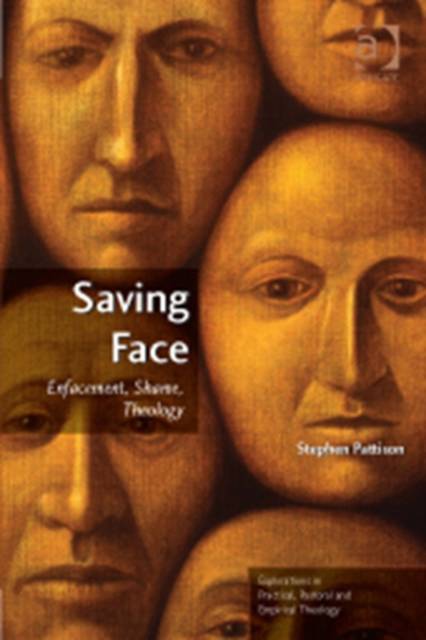
- Retrait gratuit dans votre magasin Club
- 7.000.000 titres dans notre catalogue
- Payer en toute sécurité
- Toujours un magasin près de chez vous
- Retrait gratuit dans votre magasin Club
- 7.000.0000 titres dans notre catalogue
- Payer en toute sécurité
- Toujours un magasin près de chez vous
Description
Faces are all around us and fundamentally shape both everyday experience and our understanding of people. To lose face is to be alienated and experience shame, to be enfaced is to enjoy the fullness of life. In theology as in many other disciplines faces, as both physical phenomena and symbols, have not received the critical, appreciative attention they deserve. This pioneering book explores the nature of face and enfacement, both human and divine. Pattison discusses questions concerning what face is, how important face is in human life and relationships, and how we might understand face, both as a physical phenomenon and as a series of socially-inflected symbols and metaphors about the self and the body. Examining what face means in terms of inclusion and exclusion in contemporary human society and how it is related to shame, Pattison reveals what the experience of people who have difficulties with faces tell us about our society, our understandings of, and our reactions to face. Exploring this ubiquitous yet ignored area of both contemporary human experience and of the Christian theological tradition, Pattison explains how Christian theology understands face, both human and divine, and the insights might it offer to understanding face and enfacement. Does God in any sense have a physically visible face? What is the significance of having an enfaced or faceless God for Christian life and practice? What does the vision of God mean now? If we want to take face and defacing shame seriously, and to get them properly into perspective, we may need to change our theology, thought and practice - changing our ways of thinking about God and about theology.
Spécifications
Parties prenantes
- Auteur(s) :
- Editeur:
Contenu
- Nombre de pages :
- 216
- Langue:
- Anglais
- Collection :
Caractéristiques
- EAN:
- 9781409436928
- Date de parution :
- 30-08-13
- Format:
- Livre broché
- Format numérique:
- Trade paperback (VS)
- Dimensions :
- 156 mm x 233 mm
- Poids :
- 409 g

Les avis
Nous publions uniquement les avis qui respectent les conditions requises. Consultez nos conditions pour les avis.






